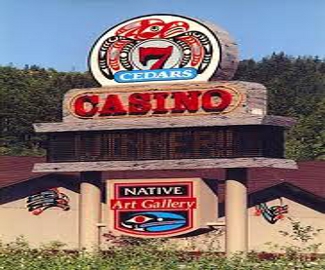 Online poker will take center stage at the US Senate Committee on Indian Affairs scheduled for February 9. Oversight Hearing on the US Department of Justice Opinion on Internet Gaming: What’s At Stake for Tribes? will likely cover a lot of ground beyond just Indian-related issues and will be closely watched throughout the gaming world.
Online poker will take center stage at the US Senate Committee on Indian Affairs scheduled for February 9. Oversight Hearing on the US Department of Justice Opinion on Internet Gaming: What’s At Stake for Tribes? will likely cover a lot of ground beyond just Indian-related issues and will be closely watched throughout the gaming world.
What’s is at Stake
When the Department of Justice (DOJ) backed away from its hard line enforcement of the Federal Wire Act last year, it did so without a lot of explanation. One of the big questions in this multi-billion dollar equation is what role do American Indian gaming interests have the process?
Whether Indian tribes are impacted negatively by online gambling or profit handsomely is a multi-million dollar question. Some of the larger tribes, like the Mohegan in Connecticut, have come out in favor of online gaming because they’ve got the resources to manage and maintain a major igaming operation. But not every Indian tribe is in favor of online gambling.
Smaller tribes like the Tulalip in Washington State are however, expressing some concern over legalized online gambling. Their main concerns are that online gaming would take a chunk out of their land based business.
Protecting Interests
If any of this sounds familiar it’s probably because many of these issues were addressed last November when this same committee took up the issue of online gaming and tribal casinos last year. That hearing, titled Oversight Hearing on the Future of Internet Gaming: What’s at Stake for Tribes? included testimony from Mohegan Tribe Chairman Bruce Bozsum.
At that time, Bozsum left no doubts about how he thought tribes would participate in legal online gaming. Bozsum wants tribal gaming revenues to remain tax exempt, and also wants to limit the geographic restrictions on players.
Should the states get the jump on the Feds when it comes to legalization, Bozsum should be in luck. Recently, Connecticut Governer Dannell Malloy said legal online gaming was, “inevitable.” It’s not surprising that Malloy would land in the pro-gaming camp, given the fact Foxwoods generates over $200 million annually for the state.
It’s safe to say that in most states, Indian tribes are not keen on the idea of competing with large domestic, and foreign, gaming companies for gambling dollars. And in some state, like Florida, the question of whether that competition is legal at all is in question.
Recommended reading: Bigger Goals Emerge for Indian Tribes Fighting for Online Poker Regulation in California
Set to Testify
There’s no final word on who will be testifying at the hearing, but a few names pop into mind immediately. Of course Bozsum is an obvious choice and so is former US Senator, and current Poker Players Association President, Alfonose D’Amoto.
Given that the hearing is addressing the Department of Justice interpretation of the Wire Act, the questions of taxation and player geography will likely take center stage. There’s still plenty of discussion about whether or not out players will be able to participate in online poker outside of their home states.
Big Picture
Next week’s hearings are just another piece in a puzzle that’s still got plenty of pieces left to play. While most gaming companies and casino interests are proceeding as if legalized online poker is a sure thing, there are still plenty of x factors that could complicate matters considerably including:
- Will online gaming be regulated by State or Federal law?
- Which games will be legalized? Poker seems a given, but what about table games?
- How will sports betting play into legalization questions? The State of New Jersey has made it clear that they’re going to challenge the Federal ban on sports betting, which is the only part of the Wire Act the DOJ said applied to Internet gambling.
- Player locations. If the Feds take the lead, player location won’t be as big an issue. But if the state’s lead the way, there’s the potential to see a mishmash of very confusing regulations.
Look for full coverage of the hearing from CAP next week.
What role do you think Indian gaming interests will take in the legalization debate? Let us know in our Online Gaming Laws and Regulations forum.